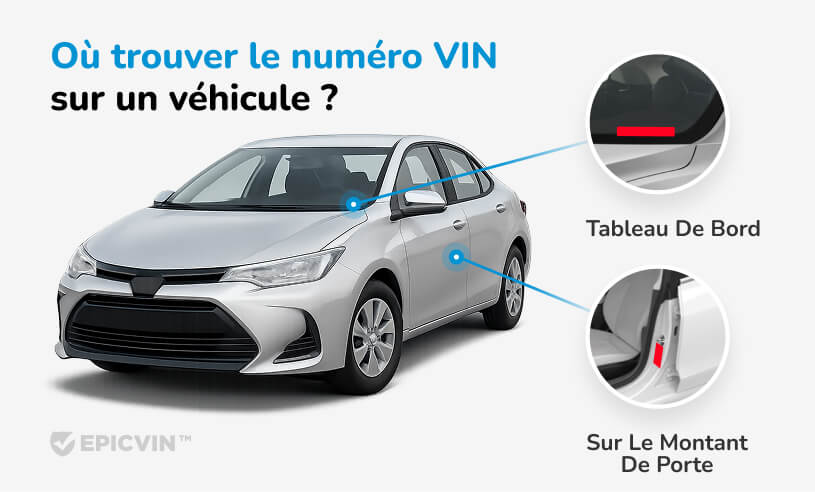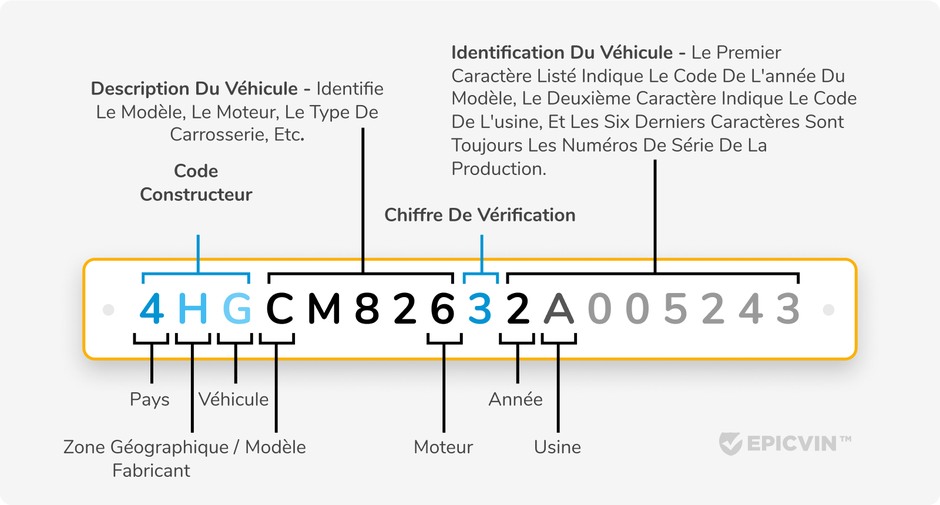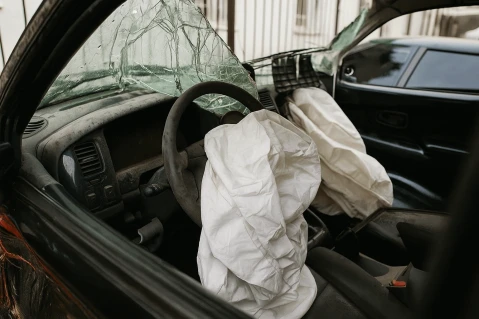
Décodage du numéro d'identification du véhicule (VIN)
Dans cet article, nous avons décrit en détail ce qu'est le code VIN.

Décodeur Freightliner gratuit ! 🚗 Consultez les spécifications, la fiche technique, les rappels et l'historique de base - sans inscription. 🛡️✅ Besoin d'informations sur les accidents, le kilométrage, le titre ? Passez à la version premium en un clic.
À la recherche du VIN ?
Voici où vous le trouverez :

Le numéro VIN Freightliner a été standardisé en 1981 par l'Institut ISO. Ce code unique de 17 caractères fournit des informations essentielles. Révélez les spécifications de votre camion, les détails de fabrication et les rappels de sécurité. Notre VIN decoder Freightliner gratuit aide les acheteurs à vérifier l'authenticité et à découvrir les problèmes potentiels avant l'achat.
Freightliner VIN decoder provides instant access to crucial vehicle information through a simple process.

Le Freightliner numéro de série apparaît dans plusieurs endroits standard sur les camions Freightliner pour une identification facile.
| Risque clé | Impact sur les acheteurs | Mesures d'atténuation |
|---|---|---|
| Risque de vol | En 2024, ~7 % des camions Freightliner de classe 8 ont été signalés volés annuellement | Installer un suivi GPS et des alarmes |
| Rappels de sécurité non réparés | ~15 % ont des rappels ouverts - airbags/freins encore actifs | Toujours décoder le VIN, vérifier NHTSA |
| Dépréciation dans le temps | Les camions Freightliner perdent ~25 % de valeur dans les 3 premières années | Acheter des unités de 2-3 ans avec peu de kilomètres |
| Fraude au compteur kilométrique | Environ 2 % des annonces de camions d'occasion ont été modifiées | Comparer le kilométrage DMV et aux enchères |
| Historique d'inondation ou de récupération caché | 5 % des camions Freightliner vendus aux enchères ont des titres de récupération non divulgués | Utiliser la vue chronologique-photo d'EpicVIN |
Atténuation des risques : Effectuer une vérification de recherche VIN pour les rappels ouverts. Vérifier numéro châssis gratuit entre plusieurs sources. Examiner les documents chronologiques avec des photographies de soutien pour vous protéger.
| Problème | Modèles affectés, symptômes, coût de réparation moyen |
|---|---|
| Panne des injecteurs DD15 | Cascadia 2018-2022 ; ralenti irrégulier, fumée à 200-300k mi ; ~5 000 $ |
| Défaut capteur système DEF | Cascadia 2019-2023 ; voyants d'avertissement, mode dégradé ; ~1 200 $ |
| Fuite d'huile turbocompresseur | M2/Cascadia 2015-2020 ; fumée excessive, perte d'huile ; ~3 500 $ |

Chaque caractère dans la séquence unique de votre véhicule raconte une histoire spécifique. Notre décodeur aide à identifier des informations cruciales sur tout véhicule spécifique grâce à une vérification VIN gratuite complète.
Il y a d'autres détails que les propriétaires et acheteurs Freightliner devraient connaître :
Voici comment notre VIN decoder Freightliner gratuit interprète une séquence d'exemple (1FUWDZYB7YPG60253) :
| Symboles | Exemple | Ce qu'il révèle |
|---|---|---|
| 1 | 1 | États-Unis comme pays d'origine |
| 2 | F | Freightliner comme fabricant |
| 3 | U | Type de véhicule poids lourd |
| 4-8 | WDZYB | Configuration châssis, type moteur, classe GVWR, série modèle et style cabine |
| 9 | 7 | Chiffre de contrôle pour validation |
| 10 | Y | Désignation année modèle 2000 |
| 11 | P | Emplacement usine d'assemblage Portland |
| 12-17 | G60253 | Numéro de série individuel du véhicule |
Année 2003
Marque Freightliner
Modèle FL60
Type de carburant Diesel
Moteur 7.2L In-Line Cat 3126/CFE
Fabriqué en USA
Notre recherche VIN Freightliner complète révèle des détails extensifs du véhicule au-delà des spécifications de base et aide à identifier l'historique du véhicule.
Nos archives chronologiques-photos révèlent des problèmes cachés comme les dégâts d'inondation avant votre enchère.— Alex Black, CMO, EpicVIN
Vérifiez le VIN du véhicule sur le cadre de porte conducteur, tableau de bord à travers pare-brise, ou rail châssis compartiment moteur pour votre recherche VIN.
La position 7 indique typiquement la configuration cabine, incluant dimensions couchette et spécifications hauteur toit pour modèles camions lourds.
La structure de base reste identique, mais les positions 4-8 contiennent des codes châssis spécialisés pour applications professionnelles et spécialisées. Référez-vous à notre Freightliner décodeur VIN pour détails.
Oui, des codes moteur et transmission spécifiques identifient les configurations kit planeur versus véhicules assemblés complets d'usine grâce à notre service de vérification VIN de Freightliner.
La lettre « P » en position 11 identifie la production de l'usine d'assemblage Portland pour la plupart des modèles Freightliner et variantes modèles populaires.
La position 6 contient typiquement les spécifications châssis, incluant dimensions rail châssis et évaluations capacité structurelle pour camions et fourgons Freightliner avec notre decode VIN Freightliner.
Le code destination marché dans la section VIS indique les modèles d'exportation configurés pour pays à conduite droite. Notre décodeur aide à identifier ces variations.
Les VIN Freightliner modernes incluent un code équipement sécurité qui identifie les installations de systèmes d'évitement et atténuation collision parmi les modèles véhicules.
Les normes VIN ont évolué dans le temps, avec codes sécurité et émissions avancés ajoutés selon changements réglementaires. La fiabilité de documentation véhicule ancien peut varier selon dossiers entreprise.
La section VDS contient des données configuration châssis qui peuvent identifier mesures empattement pour applications modèles spécifiques. Recherchez notre base de données pour décoder cette information sur tout châssis auto ou camion.
Découvrez des conseils d'experts, des astuces et des informations sur l'achat et l'entretien de véhicules d'occasion.

Dans cet article, nous avons décrit en détail ce qu'est le code VIN.

Consultez notre guide des meilleurs modèles de SUV Mercedes.

Si vos airbags se sont déployés, il est peut-être encore possible de réparer v...